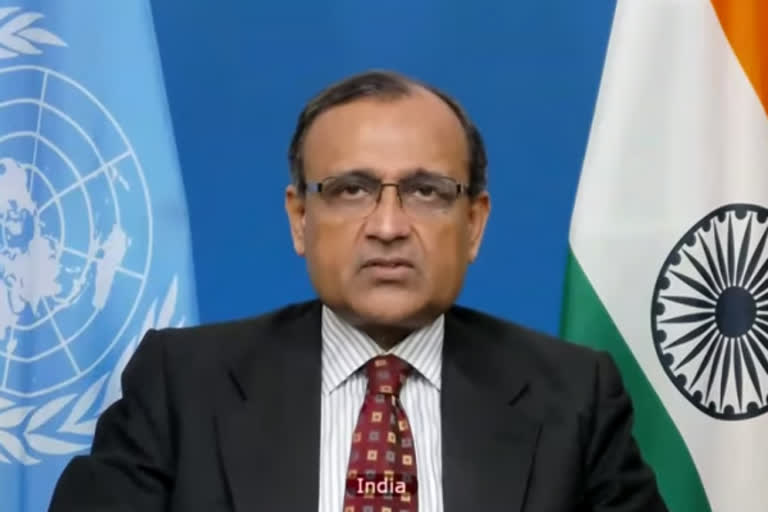United Nations:India pays great attention to the conduct of peacekeepers and has adopted a zero-tolerance policy for sexual exploitation and abuse (SEA) related serious misconduct, and the country aims to strengthen mechanisms to ensure prevention and mitigation of these issues, India's envoy to the UN has said.
Speaking at the high-level meeting with the UN Member States on 'Strengthening the Conduct of Peacekeeping Personnel' on Monday, India's Permanent Representative to the UN Ambassador T S Tirumurti said a clean image of the UN peacekeeper was the cornerstone for the success of United Nations peace operations.
India, which is among the largest troop contributing countries to UN peacekeeping missions, is also the only country among the top 20 troop contributing countries that does not figure in the list of SEA-related cases on the UN website. "India pays great attention to the conduct of the peacekeepers. We have adopted a zero-tolerance' policy for sexual exploitation and abuse (SEA) related serious misconduct and aim to strengthen mechanisms to ensure prevention and mitigation of these issues, he said.
Tirumurti said prevention lay at the core of India's efforts to combat SEA and serious misconduct issues, and screening, training, and awareness were the prime components of this approach. India's Center for UN Peacekeeping (CUNPK), which provides training to peacekeepers from India as well as partners with countries for the last 20 years, had introduced peacekeeping conduct and discipline related training modules some 10 years ago, he said.
Read:US ends 'zero tolerance' border policy leading to family separations
UN Secretary-General Antonio Guterres, in a video message to the meeting on Monday, said while the UN has steadily made progress on improving training and creating safe ways to report misconduct by UN peacekeepers, the organisation is working to increase transparency, strengthen internal accountability, and emphasise the needs and rights of victims and survivors.
Guterres said the UN Member States were our vital partners in these efforts and thanked those nations that have concluded a voluntary compact, joined his Circle of Leadership and contributed to the Trust Fund for the Victims of Sexual Exploitation and Abuse.
"I now ask all of you to go further. This is key to improving our ability to prevent misconduct, enforce standards, and remedy harm. We must support victims and survivors, as well as children born from acts of sexual exploitation or abuse by United Nations personnel. This includes ensuring that peacekeepers who father children take full responsibility for them, by helping women to make paternity and child support claims, he said.
Prime Minister Narendra Modi joined the Circle of Leadership (CoL) on the prevention of and response to SEA in United Nations operations in 2017.
India signed the Secretary General's initiative of voluntary compact on preventing and addressing SEA issues and has also been supporting UN's Pipeline to Peacekeeping Command Program (PCP) which aims to develop the capacity of future commanders and managers to lead by example and raise awareness of UN standards of conduct among their personnel.
